UConn Dominates College Basketball . . . Not So Much College Itself
UConn won another national championship. Their graduation rate remains embarrassing.
Their first year off a postseason ban for poor academic performance, the UConn men’s basketball team won their fourth national championship Monday night. (The Lady Huskies joined them Tuesday night.) Two of their star players vented over the sanctions:
The Connecticut Huskies spent more than a year quietly simmering over the postseason ban that was imposed on the program last season as part of a penalty for poor classroom performance in past years. After disposing of Kentucky for the national championship Monday night, they finally let their emotions boil over.
Standing on the dais where the championship trophy had been presented after the 60-54 win, Shabazz Napier was given a microphone and called to everybody to listen a moment.
“Ladies and gentlemen, you are looking at the hungry Huskies,” the Final Four’s Most Outstanding Player said. “This is what happens when you ban us.”
“It’s a team thing. We talk about it all the time. We were all angry,” said Ryan Boatright, who teamed with Napier to form an unbeatable backcourt in the title game. “We had nothing to do with the sanctions last year and they punished us. Now we’ve come back and we punished them.
“We had it in our hearts after what they did to us. We had it in our heads what to do about it.”
Boatright’s point is a fair one. The NCAA sanctions process almost always punishes current students and coaches for the sins of past students. In this case, though, as Libby Nelson points out at the finally launched Vox, the need for punishment was rather stark.
UConn’s graduation rate for male basketball players is still the worst of any team in the 2014 tournament.
UConn graduates 8 percent of its players, according to the most recent NCAA statistics. To put it another way: of the 12 players who started as freshmen eight years ago, exactly one managed to finish a college degree or leave UConn in good academic standing.
The University of Florida, whom the Huskies beat to advance to the championship, has a graduation success rate of 60 percent; the University of Kentucky, playing UConn tonight, has a graduation rate of 82 percent.
What’s particularly interesting about that is that Kentucky is graduating 82 percent of its basketball players despite Coach Cal’s much lamented system of recruiting “1 and done” players, superstars out of the AAU system who enter the NBA draft as soon as they are eligible–after they’ve played one year.
Now, it’s worth noting that Napier is a senior and Boatright is a junior; both are likely to graduate college. They have every right to be angry over being punished for the sins of their program. But if the NCAA wants to maintain the slightest notion that players in its big revenue sports—football and men’s basketball—are actually student-athletes, they’ve got to have some sort of hammer to punish schools who make a mockery of that notion. I’m not sure how they do that in a way that doesn’t hurt those on campus now, since by very definition the players who aren’t finishing school are already gone.
Note that I single out only two sports. The vast majority of those who play on varsity teams, including the top women basketball players, are model students.
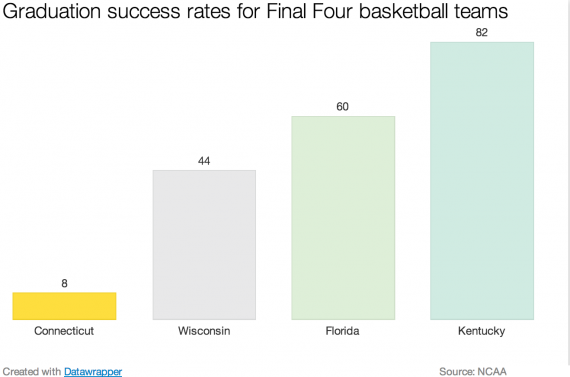

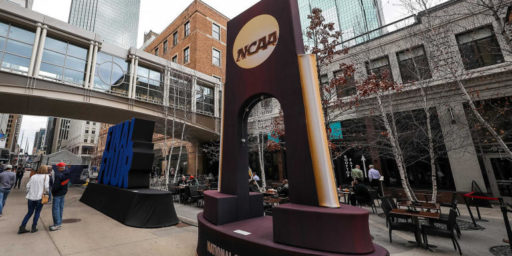
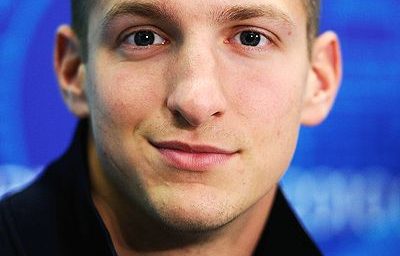
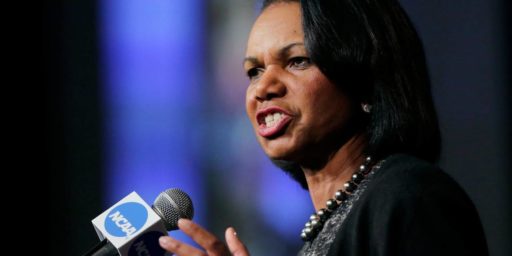

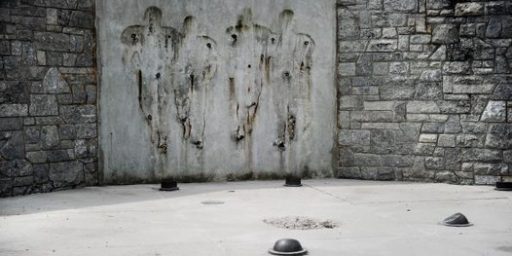
According to the link above, the graduation success rate is eight percent for UConn, but the federal graduation rate at UConn is zero percent. What’s the difference? The Federal graduation rate doesn’t include transfers, which is probably unfair. But still it means that other schools were involved in UConn’s “success rate.”
It takes four years to graduate.
Judging UCONN just one year after the sanctions is patently unfair.
Haters gonna hate.
@C. Clavin:
I should add these disclaimers:
I live in Connecticut.
My nephew is graduating from KU next month.
Supposedly steps were taken to improve things, and thus UCONN was allowed back into the tourney. I guess we’ll see. Seems to me they have nowhere to go but up. Say they get to 32% in a few years. Yay! Big success, right? 400% improvement! But still pretty damn bad.
I see much of D1 sports to be beyond redemption, so I’m not exactly unbiased here. I think popular D1 sports are basically semi-pro (at least) and pretending otherwise is an exercise in wishful thinking.
@C. Clavin:
Rock chalk, Jayhawk. Go KU!
I’m in CO, but KU’s my college basketball team. They have a similar problem with student athletes not graduating, but it’s because they leave after one year for the NBA.
The statistics (with the exception of Kentucky, who must have paid someone off to come up with their numbers) do not surprise me at all. My expectations are low – It’s college basketball, not a monastery.
This is the key to the NCAA’s methodology, from the article: “…athletes who leave to go pro, or who transfer to another college, aren’t considered dropouts unless they weren’t on track to graduate anyway.”
That means Kentucky isn’t punished in the NCAA figures for its pro-bound players (or the several who transfer to find playing time elsewhere). Kentucky has a stable of walk-ons and lesser known players who typically graduate, which boosts their numbers. However, with that in mind, UConn’s numbers look even more atrocious.
I think the NCAA is a self-interested, arbitrary, and dysfunctional organization and they are struggling now more than ever to defend the “student-athlete” myth they rely on.
Sorry, no. Unless you’re willing to blame the students for their inability to get a college degree while pursuing a full-time career in basketball, these are NOT the sins of past students.
I’m itching to see how the “student athletes are employees” ruling plays out. Major college athletics has been a festering sore on the nose of American higher education for a long time now, but this is the first time I’ve seen anything that looks remotely like it might have a chance of upsetting the gravy train.
@DrDaveT: By very definition, students who aren’t graduating within 6 years of enrollment–the standard at work here–are no longer on the basketball team. Those still on the basketball team are academically eligible and could conceivably graduate within four years, let alone six.
@James Joyner: James, you addressed that as a reply to me, but I honestly can’t parse it as responding to anything I said. Could you unpack a little? I don’t see the link between what I said and what you said.
@DrDaveT: You replied to my
with
I’m just pointing out that current students, by definition, are track to graduate. If history is any indication, they won’t. But they’re still academically eligible right now. So, the sanctions regime is in fact punishing them for past students who haven’t graduated.
@James Joyner:Ah; I was not as clear as I thought I had been. I was objecting to the phrase “sins of past students” not on the grounds that the current students were to blame, but on the grounds that the sins were not the students’ at all but the University’s. The students did not award themselves scholarships, then require themselves to practice 60 hours per week. The “full-time career in basketball” was intended to refer to their time in college.
@DrDaveT:
Basketball players do not spend 60 hours a week practicing Basketball does have the problem of occuring over both semesters but there actually is a rule on the number of hours of practice and when practice can actually begin.
Also, basketball does not have as many meetings as football and does not have film review or as much weightligting. Several newspapers have reported on the actual majors and academic progress at certain schools (Auburn, Michigan, North Carolina, Minnesota, and Washington) and one of the under-reported is the lack of real guidance of picking a major, ensuring that they take the appropriate classes.
@DrDaveT: Ah. You’ve got a really strong point there. Honestly, I don’t know how basketball and baseball players, in particular, do it. Those sports play an insane number of games and their seasons cross both of the main semesters. It’s insane.
The caveat, though, is that the same is true of Kentucky and the other schools. UConn is egregious even within an egregious system.
What is interesting is that we are assuming graduating from all these schools is a 1 to 1 equivalency. I’m sure Uconn could “graduate” these kids or get them to have “qualifying” grades if the people running the Univ of CT wanted them to. The fact is that UConn seems to give failing grades to students who do failing work, regardless of whether they are money trees. My question is how does a basketball program like KU, which is a 1 and done factory, claim such a high “graduation” rate? Perhaps b/c they let their athletes take shell classes and get credits for being no-shows in class as long as their tutors pass their tests for them. Maybe Uconn should be proud that they honestly challenge these young sports phenoms to do the work, and don’t hide it if they fail. That’s maybe one of the reasons UConn is a top national school for academics and not just a sports franchise. Just my 2 cents